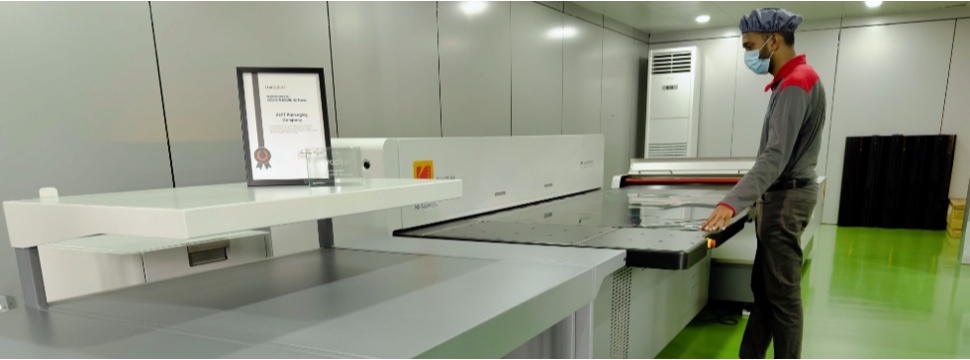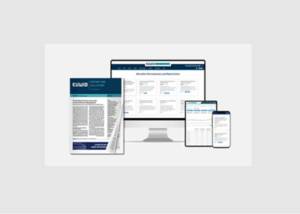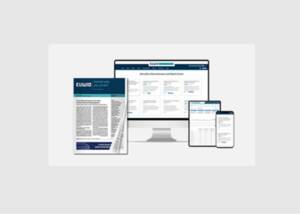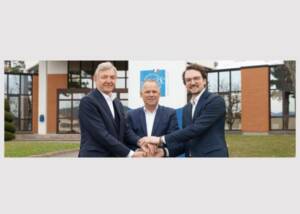ALFT Packaging Company builds new flexo force in South Asia with KODAK FLEXCEL NX System from Miraclon
News General news
For ALFT Packaging Company Chairman Lakshman De Fonseka, the official opening in August of ALFT Packaging’s new state-of-the-art flexo packaging production plant in Kotugoda, Sri Lanka, marked a return to his technological roots.

It was through flexo lamination that Lakshman first entered the printing industry 30 years ago, before building ALFT into a major force in packaging production for the food industry.
“At that time, gravure was the preferred choice of brands for quality tonal reproduction, so that was the direction we took, and where we stayed for the next 25 years or so. But it’s a different story today. In terms of quality, we see no difference between gravure and flexo, thanks almost exclusively to the advances in plate imaging that FLEXCEL NX Technology has made possible. The new production facility is a sign of our confidence in flexo’s future.”
In-house production for total control
To bring plate production in-house, ALFT has installed a FLEXCEL NX 4260 System at the new production facility, providing plates for their new Windmöller & Hölscher Miraflex II press. “Investing in in-house flexo platemaking and printing gives us total control of production and delivers a host of benefits that are relevant to our customers,” says Lakshman. “The faster turnaround with flexo is a particular advantage, enabling packaging design changes — to color or for regional variations — to be expedited. With gravure, we’re talking about lead times of three to four weeks for cylinders, which all have to be imported. And if a cylinder gets damaged during production, you wait ten to 12 days for a replacement. Compare that to the 90 minutes to make new FLEXCEL NX Plates, and the advantages are obvious.
“We can also guarantee brands the confidentiality that matters when they’re launching new products and designs — something that can be an issue with gravure, given the time between releasing artwork and receiving cylinders.”
Brands welcome investment in “best and latest technology”
Many of ALFT’s brand owner customers were in the audience at the opening ceremony, along with local business and political leaders and ALFT’s technology partners. Welcoming ALFT’s investment in “the best and latest technology”, Mrs Hajar Alafifi, chairperson and MD of Unilever Sri Lanka, predicted that “having such a facility will make Sri Lanka a prime partner for countries in South and Southeast Asia.” She also described vividly what moving to flexo from gravure means to all brand owners. “Currently we have to go to places like Dubai for this work, which can take six weeks. Because we can now do it in Sri Lanka, we are more agile, more flexible, and faster to market.”
Efficient production is a key focus for ALFT. For example, when it was setting up its gravure operation the company took key staff to Japan to study that country’s approach to efficient production. Their learnings inspired ALFT to replicate and implement the same approach, which saw them building a state-of-the art facility with stringent hygiene and cleaning standards. This also enabled it to become the only packaging facility with an A+ rating in their BRC Global Food Safety Standards Certification in Sri Lanka today. So, how FLEXCEL NX Plates perform on-press is especially important. “The consistency of the plates means we can standardize the production process and get the maximum efficiency and productivity from the new press. It’s also enabling us to move into Extended Color Gamut for certain brands, which is another huge efficiency gain. FLEXCEL NX Plates are also very durable, so we have fewer machine stops.”
“Always choose the Number One product”
Lakshman is gratified that his early enthusiasm for flexo has now been vindicated, with the technology widely acknowledged as a premium production method for flexible packaging. He credits the FLEXCEL NX System for the change: “The basic concept and design of the flexo CI press hasn’t changed. What has changed is the prepress and platemaking upstream of the press, and this evolution has been supported by the anilox and ink manufacturers. So everything is now at the right level and going in the right direction.”
Asked why ALFT chose the FLEXCEL NX System, he says simply, “The FLEXCEL NX System is a brilliant piece of equipment”, adding that “our philosophy is always to buy the best. If you choose anything other than the Number One solution you’re compromising, and you won’t get the best out of the set-up. It’s for this reason that we invested in the W&H Miraflex II press and FLEXCEL NX System. Recognized as some of the flexo industry’s best-in-class equipment, they work beautifully together, ensure fast changeovers and enable faster turnaround times.”
Moving from gravure to flexo
While Lakshman acknowledges that gravure is still the dominant process in the South and Southeast Asian markets, in the future he foresees the steady migration to flexo. “It’s just a question of changing customers’ mindsets, and the best way to do that is to show them the results. So, we are gradually moving work previously gravure printed to flexo, with our customers’ consent of course. Our approach is that whenever there’s a change to a product, we take the opportunity to propose a flexo version. In our experience, as long as we can show brand owners that flexo quality is every bit as good as the gravure, they’re very comfortable with the change. Especially when they get all the additional efficiency benefits that come with flexo.”










